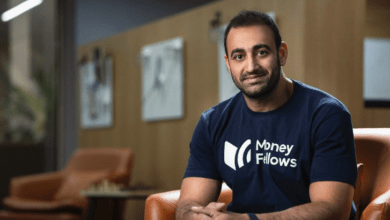Singapore based docquity a collaboration and learning platform for health care professionals raised a 44m series c bringing its total funding to 57 5m catherine shu techcrunch
Docquity, a community for healthcare professionals, raises $44M Series C | singaporebased 50m seriesshutechcrunch
Docquity, a community for healthcare professionals, raises $44M Series C
singaporebased 50m seriesshutechcrunch
A call between doctors can save lives. That’s what Docquity co-founder Indranil Roychowdhury learned when his father was hospitalized with a life-threatening condition in India. An emergency room doctor initially told him that there was no chance of survival, but then another doctor called one of his peers in the United States, and they came up with an alternative treatment plan that worked. Docquity was created to help doctors collaborate in the same way, at scale, even if they live in different countries.
The Singapore-based company announced today it has raised $44 million in Series C funding led by returning investors Itochu Corporation, which put in $32 million. The rest of the round came from investors including iGlobe Partners, Alkemi, Global Brain, KDV and Infocom.
Roychowdhury told TechCrunch that after his father’s experience, he and his co-founders, Amit Vithal and Abhishek Wadhwa, wondered why “in today’s day of social media, it took a phone call to save someone’s life.” Docquity was founded in 2015 so doctors and other healthcare professionals have an easier way of working with one another.
New capital brings Docquity’s total raised to $57.5 million
The new capital brings Docquity’s total raised to $57.5 million. It says it is the largest community of healthcare professionals in Southeast Asia, with more than 350,000 doctors on board. The funding will be used to grow Docquity in its existing markets, like Indonesia and the Philippines, and enter new ones, including Japan, the United Arab Emirates, Saudi Arabia and Egypt. It recently launched in Taiwan, where more than 2,000 doctors have signed up so far. The company claimed two-fold revenue growth in 2021.
The company now has a team of 300 people and aside from its Singapore headquarters, also has a tech and engineering hub in Gurgoan, India and other offices in Indonesia, the Philippines, Malaysia, Thailand, Vietnam and Taiwan.
In addition to giving doctors tools to connect and collaborate, Docquity has partnered with more than 250 medical associations in Southeast Asia to develop learning modules, which can be used to earn compulsory continuing medical education (CME) credits. The company says that so far, its platform has enabled doctors to earn a total of 4.2 million CME credits.
Docquity three new initiatives
Docquity has three new initiatives. The first, Docquity Academy, partners with universities and senior medical practitioners to create learning tools for doctors. The second, Docquity Clinic, allows doctors to have follow-up consultations with their patients. Finally, Docquity Insights takes data about user engagement on the platform to understand what they need.
Roychowdhury said that on average, about 50,000 doctors take courses on its platform every month, and that it was one of the first companies to launch online lectures and symposiums when the pandemic started in 2020. It now hosts about 500 lectures a month. Doctors taking the courses can also join private groups to discuss real-world cases and the best treatment plans.
“While teaching and exam-style education is a key component, we believe that experiential learning through case discussions among peers in a major learning source for doctors,” said Roychowdhury.
Docquity ensures patient privacy through several measures. It’s a closed, GDPR and HIPAA-compliant network that only allows in doctors verified by medical associations. It has also set up internal compliance and pharma co-vigilance team to ensure privacy and security. It lets pharmaceutical and medical device companies to engage with doctors, but no advertisements are allowed on the platform.
Another Docquity initiative is making healthcare more affordable. It recently launched its Patient Adherence Program (PAP) to help doctors bring care to underserved patients. “Making treatments more affordable is a key objective of the platform and we have started working in breast cancer as a therapeutic area with one of our clients and have already served close to 600 breast cancer patients in the Philippines,” said Roychowdhury.
Singapore-based crypto trading platform AscendEX raises a $50M Series B co-led by Polychain Capital and Hack VC, at a $455M valuation (Andrew Asmakov/Decrypt)
Alameda Research, Polychain Capital Back ‘CeFi DeFi’ Crypto Exchange AscendEx

Crypto Companies Raise Record-Breaking $6.5B in Q3 2021
More DeFi innovation




